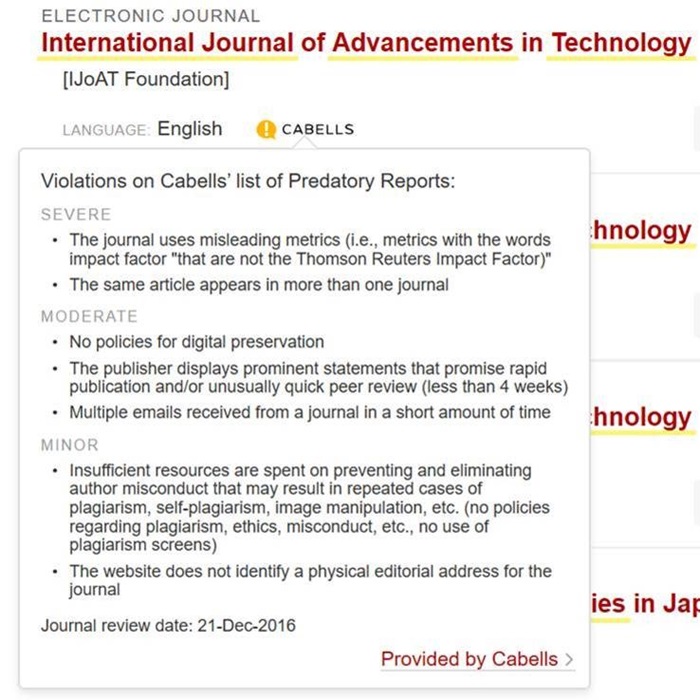Predatory journals are journals with no peer-review and with a title resembling existing, well-known titles from reputable publishers.
You can now see if an article found in DTU Findit is published in a journal, which is a potential predatory journal - with the help of data from Cabells Predatory Reports list now integrated with DTU Findit.
Cabells is a service that gathers information about scientific journals with a focus on avoiding predatory journals. DTU Library also gives DTU employees and students access to Cabells.
Cabells Predatory Reports is a list of journals that do not live up to good scientific practice. Cabells clearly describes what lies behind their assessment of the journal.
The Cabells icon in DTU Findit
In DTU Findit, the journals and articles that may be predatory are marked with a yellow Cabells icon.
Clicking on the Cabells icon will show you a report with the factors behind Cabells’ assessment of the journal.

Why is it important to pay attention to predatory journals?
Predatory journals are journals without peer-review and they trick researchers who submit their articles to the journals into believing that they have submitted them to a valid journal.
Publication in a predatory journal can have financial consequences, as researchers risk having to pay a ransom if the article is to be published elsewhere.
Researchers who publish in predatory journals also miss out on citations and visibility, and if your research is published by, or associated with, predatory publishers, it can affect your professional reputation.
How to use Cabells in DTU Findit?
The lack of peer review, impact factor and transparency are characteristics that give you as a researcher the opportunity to discover whether a journal you are considering publishing in is a serious journal or a predatory journal.
Now, you can easily see these points of attention for articles and journals in DTU Findit as these articles are marked with the yellow Cabells icon in your results list.
Cabells' lists is updated monthly.
Why does DTU Library not just delete the predatory journal?
DTU Library has chosen to draw attention to journals and articles that are on the Predatory Reports list, in a way that gives students and researchers the opportunity to assess for themselves whether the reference is relevant, despite the danger signs from Cabells.